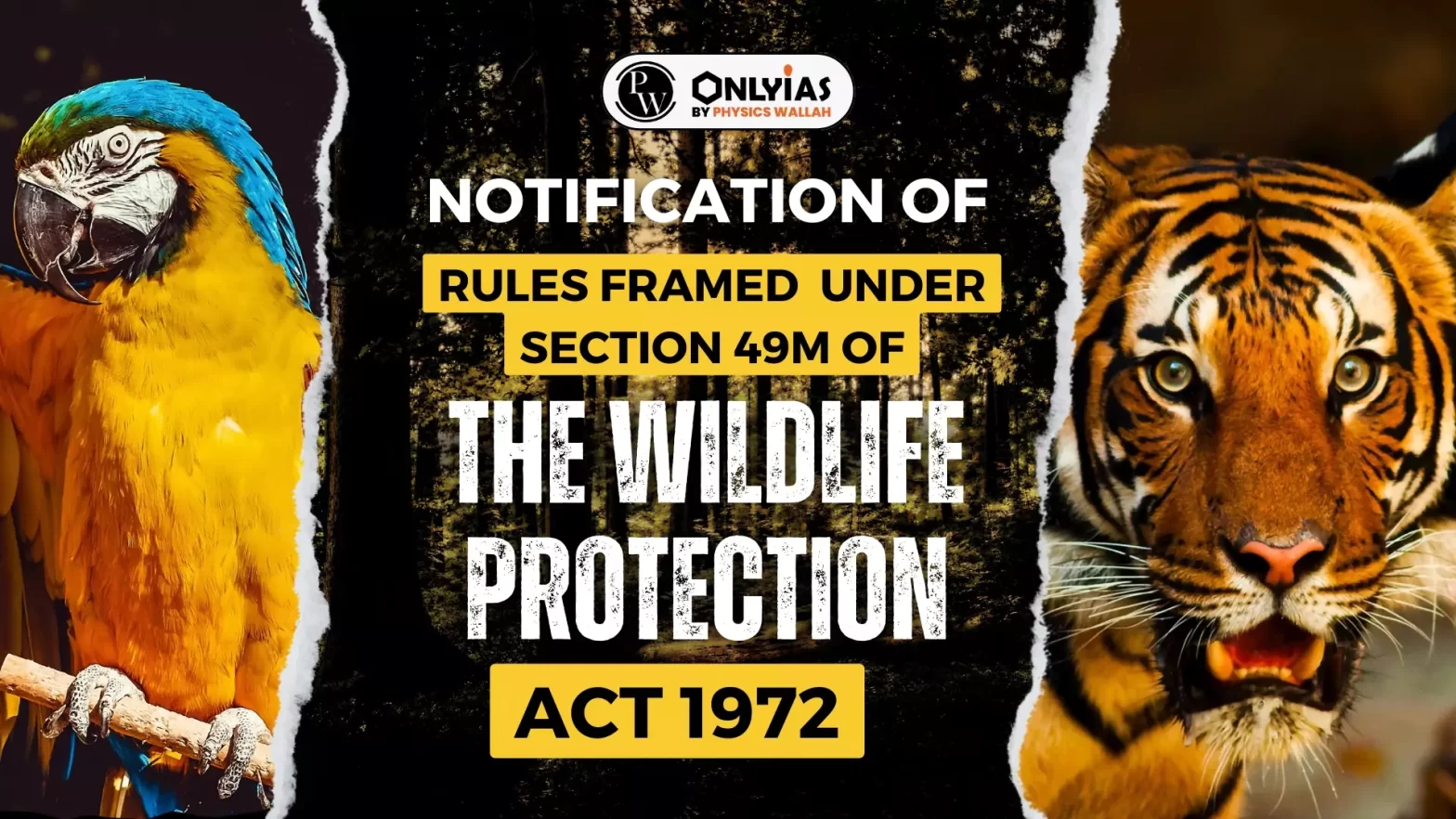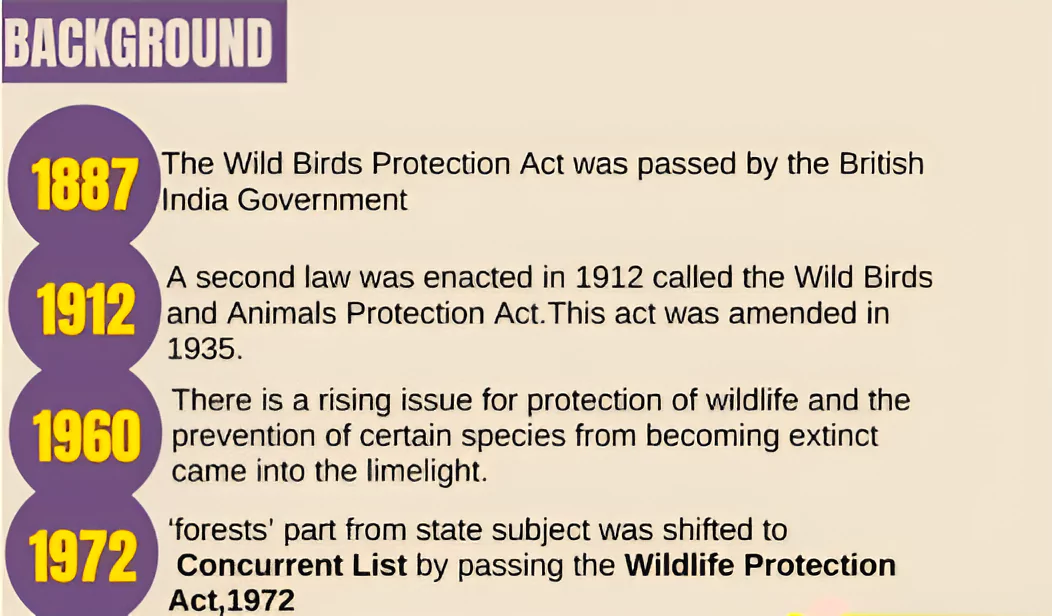![]() 8 Mar 2024
8 Mar 2024
English
हिन्दी

This Article is based on the news “Notification of Rules framed under Section 49M of the Wildlife Protection Act, 1972 (as amended in 2022” which was published in the PIB. Notification of Rules Framed Under Section 49M of the Wildlife Protection Act 1972 have been released by the Ministry of Environment, Forest and Climate Change.
| Relevancy for Prelims: Forests In India, BIODIVERSITY,Protected Areas, Forest Conservation, Forest Conservation Act 1980, Rising Human Wildlife Conflict, and National Parks & Wildlife Sanctuaries In India
Relevancy for Mains: Wildlife Protection Act: Provisions, Sections and Schedules. |
|---|
 The act protects wild animals, birds, and plants and matters connected with them. It extends to the whole of India.
The act protects wild animals, birds, and plants and matters connected with them. It extends to the whole of India.CITES:
|
|---|
| Prelims PYQ (2020):
If a particular plant species is placed under Schedule VI of The Wildlife Protection Act, 1972, what is the implication? (a) a license is required to cultivate that plant. (b) Such a plant cannot be cultivated under any circumstances. (c) It is a Genetically Modified crop plant. (d) Such a plant is invasive and harmful to the ecosystem. Ans: (a) |
|---|
| Mains Question: Critically assess the enforcement mechanisms outlined in the Wildlife Protection Act. How effective are these mechanisms in deterring wildlife-related offenses? (250 words, 15 Marks) |
|---|
| Must Read | |
| NCERT Notes For UPSC | UPSC Daily Current Affairs |
| UPSC Blogs | UPSC Daily Editorials |
| Daily Current Affairs Quiz | Daily Main Answer Writing |
| UPSC Mains Previous Year Papers | UPSC Test Series 2024 |
<div class="new-fform">
</div>